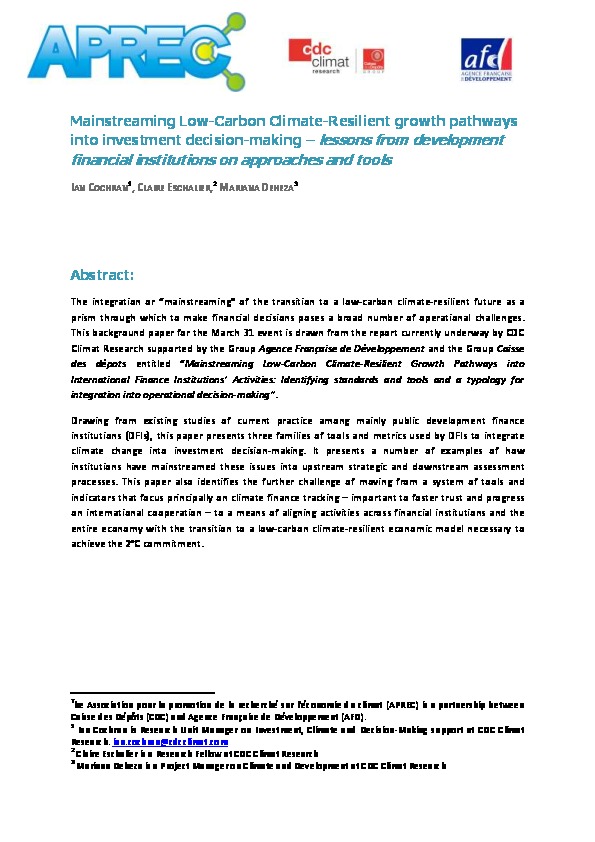Mainstreaming Low-Carbon Climate-Resilient growth pathways into investment decision-making – lessons from development financial institutions on approaches and tools
The integration or “mainstreaming” of the transition to a low-carbon climate-resilient future as a prism through which to make financial decisions poses a broad number of operational challenges. This background paper for the March 31 event is drawn from the report currently underway by I4CE supported by the Group Agence Française de Développement and the Group Caisse des Dépots entitled “Mainstreaming Low-Carbon Climate-Resilient Growth Pathways into International Finance Institutions’ Activities: Identifying standards and tools and a typology for integration into operational decision-making”.
Drawing from existing studies of current practice among mainly public development finance institutions (DFIs), this paper presents three families of tools and metrics used by DFIs to integrate climate change into investment decision-making. It presents a number of examples of how institutions have mainstreamed these issues into upstream strategic and downstream assessment processes. It also identifies the further challenge of moving from a system of tools and indicators that focus principally on climate finance tracking – important to foster trust and progress on international cooperation – to a means of aligning activities across financial institutions and the entire economy with the transition to a low-carbon climate-resilient economic model necessary to achieve the 2°C commitment.
